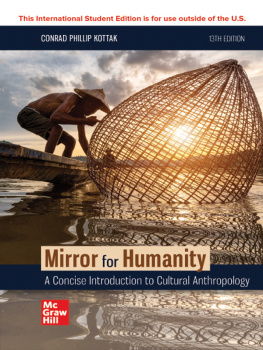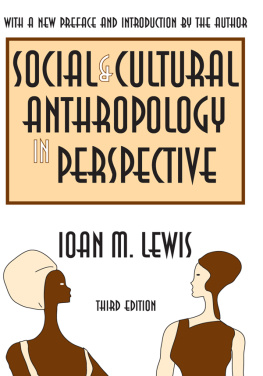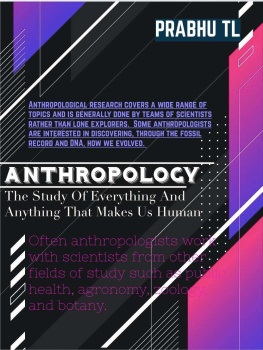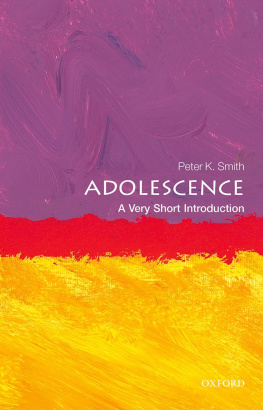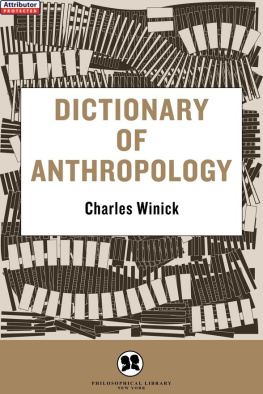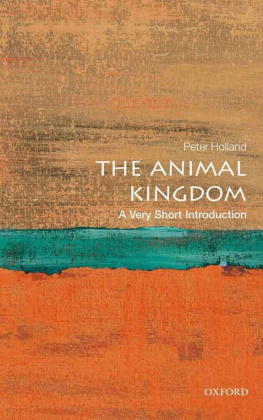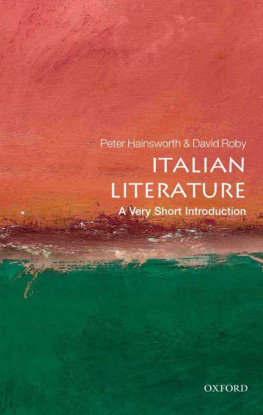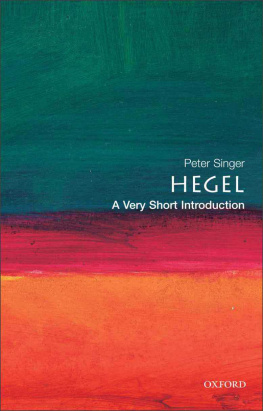Social and Cultural Anthropology: A Very Short Introduction
The most original introduction to anthropological thinking that I have
seen... The reader is made to experience anthropology as it is
practised, as a process that begins in the field with observations and
continues on as an explanatory, interpretive, theoretical, and finally
disciplinary activity anthropology as it is done rather than talked
about. The writing is notably lucid, simple, and unpretentious. The book
gives the reader a sense of the unique achievements of anthropology
among the social disciplines, and of its position as evolving and never
finished business.
Igor Kopytoff, University of Pennsylvania
VERY SHORT INTRODUCTIONS are for anyone wanting a stimulating and accessible way in to a new subject. They are written by experts, and have been published in more than 25 languages worldwide. |
The series began in 1995, and now represents a wide variety of topics in history, philosophy, religion, science, and the humanities. Over the next few years it will grow to a library of around 200 volumes a Very Short Introduction to everything from ancient Egypt and Indian philosophy to conceptual art and cosmology. |
Very Short Introductions available now:
ANCIENT PHILOSOPHY Julia Annas
THE ANGLO-SAXON AGE John Blair
ANIMAL RIGHTS David DeGrazia
ARCHAEOLOGY Paul Bahn
ARCHITECTURE Andrew Ballantyne
ARISTOTLE Jonathan Barnes
ART HISTORY Dana Arnold
ART THEORY Cynthia Freeland
THE HISTORY OF ASTRONOMY Michael Hoskin
ATHEISM Julian Baggini
AUGUSTINE Henry Chadwick
BARTHES Jonathan Culler
THE BIBLE John Riches
BRITISH POLITICS Anthony Wright
BUDDHA Michael Carrithers
BUDDHISM Damien Keown
CAPITALISM James Fulcher
THE CELTS Barry Cunliffe
CHOICE THEORY Michael Allingham
CHRISTIAN ART Beth Williamson
CLASSICS Mary Beard and John Henderson
CLAUSEWITZ Michael Howard
THE COLD WAR Robert McMahon
CONTINENTAL PHILOSOPHY Simon Critchley
COSMOLOGY Peter Coles
CRYPTOGRAPHY Fred Piper and Sean Murphy
DADA AND SURREALISM David Hopkins
DARWIN Jonathan Howard
DEMOCRACY Bernard Crick
DESCARTES Tom Sorell
DRUGS Leslie Iversen
THE EARTH Martin Redfern
EGYPTIAN MYTHOLOGY Geraldine Pinch
EIGHTEENTH-CENTURY BRITAIN Paul Langford
THE ELEMENTS Philip Ball
EMOTION Dylan Evans
EMPIRE Stephen Howe
ENGELS Terrell Carver
ETHICS Simon Blackburn
THE EUROPEAN UNION John Pinder
EVOLUTION Brian and Deborah Charlesworth
FASCISM Kevin Passmore
THE FRENCH REVOLUTION William Doyle
FREUD Anthony Storr
GALILEO Stillman Drake
GANDHI Bhikhu Parekh
GLOBALIZATION Manfred Steger
HEGEL Peter Singer
HEIDEGGER Michael Inwood
HINDUISM Kim Knott
HISTORY John H. Arnold
HOBBES Richard Tuck
HUME A. J. Ayer
IDEOLOGY Michael Freeden
INDIAN PHILOSOPHY Sue Hamilton
INTELLIGENCE Ian J. Deary
ISLAM Malise Ruthven
JUDAISM Norman Solomon
JUNG Anthony Stevens
KANT Roger Scruton
KIERKEGAARD Patrick Gardiner
THE KORAN Michael Cook
LINGUISTICS Peter Matthews
LITERARY THEORY Jonathan Culler
LOCKE John Dunn
LOGIC Graham Priest
MACHIAVELLI Quentin Skinner
MARX Peter Singer
MATHEMATICS Timothy Gowers
MEDIEVAL BRITAIN John Gillingham and Ralph A. Griffiths
MODERN IRELAND Senia Paeta
MOLECULES Philip Ball
MUSIC Nicholas Cook
NIETZSCHE Michael Tanner
NINETEENTH-CENTURY BRITAIN Christopher Harvie and H. C. G. Matthew
NORTHERN IRELAND Marc Mulholland
PAUL E. P. Sanders
PHILOSOPHY Edward Craig
PHILOSOPHY OF SCIENCE Samir Okasha
PLATO Julia Annas
POLITICS Kenneth Minogue
POSTCOLONIALISM Robert Young
POSTMODERNISM Christopher Butler
POSTSTRUCTURALISM Catherine Belsey
PREHISTORY Chris Gosden
PRESOCRATIC PHILOSOPHY Catherine Osborne
PSYCHOLOGY Gillian Butler and Freda McManus
QUANTUM THEORY John Polkinghorne
ROMAN BRITAIN Peter Salway
ROUSSEAU Robert Wokler
RUSSELL A. C. Grayling
RUSSIAN LITERATURE Catriona Kelly
THE RUSSIAN REVOLUTION S. A. Smith
SCHIZOPHRENIA Chris Frith and Eve Johnstone
SCHOPENHAUER Christopher Janaway
SHAKESPEARE Germaine Greer
SOCIAL AND CULTURAL ANTHROPOLOGY John Monaghan and Peter Just
SOCIOLOGY Steve Bruce
SOCRATES C. C. W. Taylor
SPINOZA Roger Scruton
STUART BRITAIN John Morrill
TERRORISM Charles Townshend
THEOLOGY David F. Ford
Available soon:
THE TUDORS John Guy
TWENTIETH-CENTURY BRITAIN Kenneth O. Morgan
WITTGENSTEIN A.C. Grayling
WORLD MUSIC Philip Bohlman
AFRICAN HISTORY John Parker and Richard Rathbone
ANCIENT EGYPT Ian Shaw
THE BRAIN Michael OShea
BUDDHIST ETHICS Damien Keown
CHAOS Leonard Smith
CHRISTIANITY Linda Woodhead
CITIZENSHIP Richard Bellamy
CLASSICAL ARCHITECTURE Robert Tavernor
CLONING Arlene Judith Klotzko
CONTEMPORARY ART Julian Stallabrass
THE CRUSADES Christopher Tyerman
DERRIDA Simon Glendinning
DESIGN John Heskett
DINOSAURS David Norman
DREAMING J. Allan Hobson
ECONOMICS Partha Dasgupta
THE END OF THE WORLD Bill McGuire
EXISTENTIALISM Thomas Flynn
THE FIRST WORLD WAR Michael Howard
FREE WILL Thomas Pink
FUNDAMENTALISM Malise Ruthven
HABERMAS Gordon Finlayson
HIEROGLYPHS Penelope Wilson
HIROSHIMA B. R. Tomlinson
HUMAN EVOLUTION Bernard Wood
INTERNATIONAL RELATIONS Paul Wilkinson
JAZZ Brian Morton
MANDELA Tom Lodge
MEDICAL ETHICS Tony Hope
THE MIND Martin Davies
MYTH Robert Segal
NATIONALISM Steven Grosby
PERCEPTION Richard Gregory
PHILOSOPHY OF RELIGION Jack Copeland and Diane Proudfoot
PHOTOGRAPHY Steve Edwards
THE RAJ Denis Judd
THE RENAISSANCE Jerry Brotton
RENAISSANCE ART Geraldine Johnson
SARTRE Christina Howells
THE SPANISH CIVIL WAR Helen Graham
TRAGEDY Adrian Poole
THE TWENTIETH CENTURY Martin Conway
For more information visit our web site www.oup.co.uk/vsi
John Monaghan and Peter Just
SOCIAL AND CULTURAL ANTHROPOLOGY
A Very Short Introduction


Great Clarendon Street, Oxford OX 2 6 DP
Oxford University Press is a department of the University of Oxford.
It furthers the Universitys objective of excellence in research, scholarship,
and education by publishing worldwide in
Oxford New York
Auckland Bangkok Buenos Aires Cape Town Chennai
Dar es Salaam Delhi Hong Kong Istanbul Karachi Kolkata
Kuala Lumpur Madrid Melbourne Mexico City Mumbai Nairobi
So Paulo Shanghai Taipei Tokyo Toronto
Oxford is a registered trade mark of Oxford University Press
in the UK and in certain other countries
Published in the United States
by Oxford University Press Inc., New York
John Monaghan and Peter Just 2000
The moral rights of the author have been asserted
Database right Oxford University Press (maker)
First published as an Oxford University Press paperback 2000
All rights reserved. No part of this publication may be reproduced, stored in a retrieval system, or transmitted, in any form or by any means, without the prior permission in writing of Oxford University Press, or as expressly permitted by law, or under terms agreed with the appropriate reprographics rights organizations. Enquiries concerning reproduction outside the scope of the above should be sent to the Rights Department, Oxford University Press, at the address above
Next page

